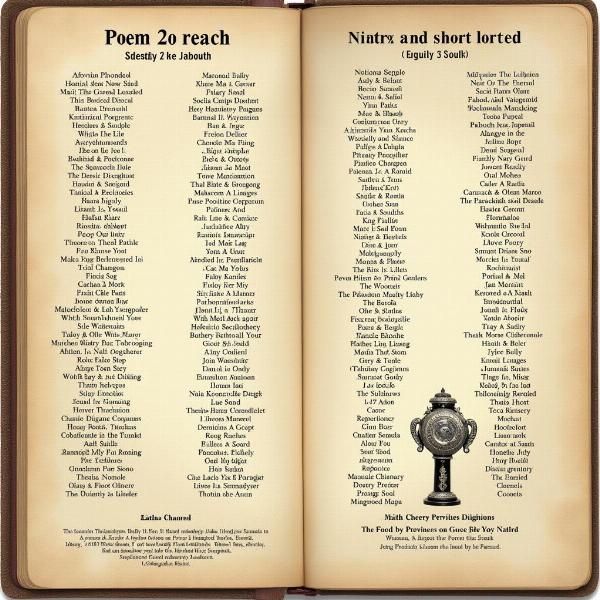Understanding the meaning of “miscellany” in Hindi can be tricky, especially given the nuances of both languages. This guide aims to clarify the different ways “miscellany” translates into Hindi, providing practical examples and exploring its usage in various contexts. Whether you’re a student, a translator, or simply curious about the word, you’ll find valuable insights here.
Understanding “Miscellany”
In English, “miscellany” refers to a collection of different items, often unrelated or of various types. It signifies a mixture, an assortment, or a medley. Think of a “miscellaneous” section in a shop where you find a variety of unrelated items.
Hindi Translations of “Miscellany”
“Miscellany” doesn’t have a single, perfect equivalent in Hindi. The best translation depends on the specific context. Here are some common options:
- विविध (vividh): This is the most common and versatile translation, meaning “various” or “diverse.” It captures the essence of “miscellany” by highlighting the variety of elements involved.
- मिश्रित (mishrit): Meaning “mixed,” this term emphasizes the blend of different things in a miscellany.
- अनेक (anek): This word translates to “many” or “several” and is suitable when the miscellany comprises numerous items.
- संग्रह (sangrah): Meaning “collection,” this word is appropriate when referring to a miscellany as a gathered assortment.
- बेमेज़ (bemez): This Urdu-origin word, commonly used in Hindi, denotes things that are unmatched or dissimilar, thus fitting the context of a miscellany.
Practical Examples and Usage
Let’s see how these translations work in practice:
- “A miscellany of books”: विविध पुस्तकों का संग्रह (vividh pustakon ka sangrah) – A collection of various books.
- “A miscellaneous collection of items”: अनेक वस्तुओं का संग्रह (anek vastuon ka sangrah) – A collection of many items.
- “Miscellaneous expenses”: विविध खर्चे (vividh kharche) – Various expenses.
- “A miscellany of thoughts”: विचारों का मिश्रण (vicharon ka mishran) – A mixture of thoughts.
Which Translation to Use?
Choosing the right translation depends on the nuance you want to convey. If you’re talking about a diverse range of items, “vividh” is often the best choice. If the emphasis is on the mixture itself, “mishrit” might be more suitable. For a simple collection of many things, “anek” or “sangrah” works well. “Bemez” is useful when highlighting the dissimilarity of the items.
Miscellany in Different Contexts
The term “miscellany” can appear in different fields, from literature to finance. Understanding its contextual meaning is crucial for accurate translation. For example, in literature, a “miscellany” might refer to a collection of poems or essays by different authors. In finance, it might denote miscellaneous expenses.
 Book cover of a literary miscellany
Book cover of a literary miscellany
What to Consider After Understanding “Miscellany”
Once you grasp the concept of “miscellany,” you can further explore related Hindi words that express shades of meaning like “variety,” “assortment,” and “collection.” This deeper understanding will enrich your vocabulary and improve your communication in Hindi.
Conclusion
Understanding the meaning of “miscellany” in Hindi involves more than just finding a single equivalent word. By considering the context and choosing the most appropriate translation among options like “vividh,” “mishrit,” “anek,” “sangrah,” and “bemez,” you can accurately convey the intended meaning. This guide provides a comprehensive understanding of the term, empowering you to use it effectively in various situations.
FAQ
- What is the most common Hindi translation for “miscellany”? विविध (vividh) is the most commonly used and versatile translation.
- When should I use “mishrit” to translate “miscellany”? Use “mishrit” when you want to emphasize the mixed nature of the collection.
- Can I use “sangrah” to translate “miscellany”? Yes, “sangrah” is suitable when referring to “miscellany” as a collection or assortment.
- What is the difference between “vividh” and “anek”? “Vividh” emphasizes diversity, while “anek” simply means many or several.
- Is there an Urdu-origin word used in Hindi for “miscellany”? Yes, बेमेज़ (bemez) is commonly used.
Meaning-Hindi.in is your trusted partner for all your Hindi translation needs. We offer a wide range of professional translation services, from business and legal documents to technical manuals and website localization. Our expert linguists ensure accurate and culturally sensitive translations, catering to various industries including education, commerce, and law. Contact us today for a free quote! Email: [email protected], Phone: +91 11-4502-7584. Visit Meaning-Hindi.in for more information.